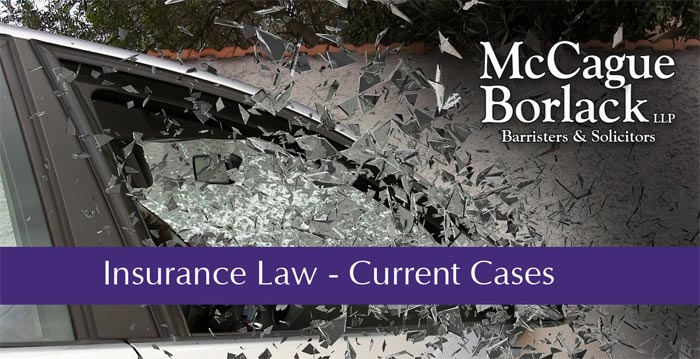Each party retained accountants to analyze all the claimant's expenses and then provided conflicting accounting reports on who the claimant was principally financially dependent on.
...a careful review of financials was required by the arbitrator. |
Considering the "back and forth" testimony of who paid for what, along with the competing accountants' reports, a careful review of financials was required by Arbitrator Bialkowski.
Relevant Analysis & Findings
Arbitrator Bialkowski pointed out these findings:
- Since the claimant was an occupant of the vehicle at the time of the accident, the following rules of hierarchy concerning the priority of payment apply.2
- The occupant has recourse against the insurer of an automobile in respect of which the occupant is an insured;
- If recovery is unavailable under (i), the occupant has recourse against the insurer of the automobile in which he or she was an occupant; (items iii & iv were left off as they don't pertain to this case).
- For accidents on or after September 1, 2010, the Ontario Regulation 34/103 defines an "insured person" as follows:
the named insured, any person specified in the policy as a driver of the insured automobile and, if the named insured is an individual, the spouse of the named insured and a dependent of the named insured or of his or her spouse (emphasis added).
- For accidents on or after September 1, 2010, Ontario Regulation 34/104, defines a "dependant" as follows:
“a person is dependant of an individual if the person is principally dependent for financial support or care on the individual or the individual's spouse.”
One issue of note was the claimant had moved from her mother's residence to her father's. As there was no evidence to suggest that the arrangement was only temporary, this was the claimant's "new normal" at the time of the accident. Therefore, regardless if this arrangement was only a few months old, the relative contributions of her father and stepmother would be ongoing. The accountants retained by both insurers had used a two-month period for analysis and Arbitrator Bialkowski used the average monthly contributions for his calculations.
Conclusion
Based on the claimant being a minor and a full-time high school student, Arbitrator Bialkowski found the claimant to be dependent on her father at the time of the accident.
Furthermore, based on Arbitrator Bialkowski's careful review of reports and calculations of who paid what expenses ongoing (some of which were divided again among the entire household), it was determined the father's contributions were greater (father 64% vs. stepmother 36%). Therefore, based on the hierarchy of priority, (i) applied, which, in turn, meant the claimant was deemed principally financially dependent on the father at the time of the accident. As such, Intact was the priority insurer.
The applicant (TD) received indemnity for previous benefits paid to the claimant and was awarded legal costs.
Read Arbitrator Bialkowski's full decision.
- TD Insurance and Intact Insurance, decision 295, June 23, 2020
- Insurance Act, Section 268(2)
- Statutory Accident Benefits Schedule, Section 3(1)
- Miller v. Safeco (1986), 48 O.R. (2d) 451 (H.C.J.) aff'd 50 O.R. (2d) 797 (C.A.).



